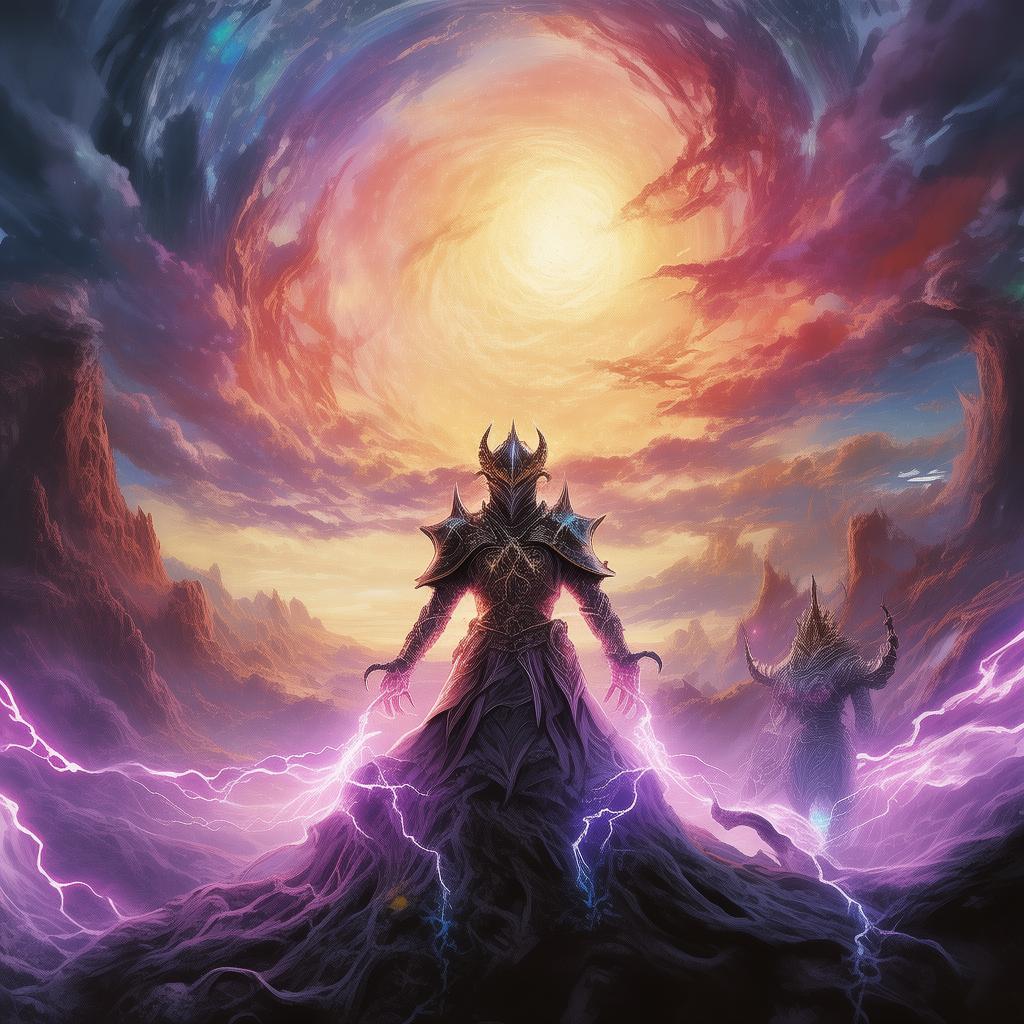The Resurrection of the Emperor's Chessboard
In the heart of the ancient kingdom of Elysia, where the whispers of magic still danced on the wind, there lay a legend that had been forgotten for centuries—the Emperor's Chessboard. This was no ordinary chessboard; it was a relic of power, a piece of the ancient magic that once ruled the world. The board itself was said to hold the ability to reshape reality, to control the very essence of existence.
In the year 980 AE, a young scholar named Elara discovered an old, dusty chest in her grandmother's attic. Inside, she found the chessboard, its surface etched with intricate runes that glowed faintly in the dim light. Her grandmother, a woman of few words, had always spoken of the board with reverence, but had never revealed its true nature.

Elara's curiosity was piqued. She spent days studying the board, her mind racing with possibilities. She knew that her discovery could change the course of history, but she was unsure of how to wield such power. She decided to keep the board a secret, hoping to learn more about its magic and its potential.
Word of Elara's discovery soon spread through the kingdom. The king, a man known for his cunning and desire for power, sent his most trusted advisor, Lord Vane, to investigate. Lord Vane was a man who valued power above all else, and he saw the chessboard as a means to an end.
As Elara and Lord Vane's paths crossed, a web of intrigue and deceit began to weave itself around the chessboard. Elara, who had once been a simple scholar, found herself at the center of a power struggle that would determine the fate of the kingdom.
"The board is alive, Elara," a mysterious figure named Aric revealed to her. "It can be used to control not just the pieces on the board, but the very minds of those who play it."
Elara was skeptical, but as she learned more about the board's magic, she realized that Aric's words might be true. The board could alter reality, but it came at a cost—the player must be willing to sacrifice their own essence to control it.
Lord Vane, who had been eavesdropping, was determined to seize the board for himself. He saw it as a way to solidify his hold on the kingdom and to become the most powerful man in Elysia.
As the conflict escalated, Elara found herself caught between two worlds. She was torn between her duty to the kingdom and her desire to understand the board's magic. She knew that if she used the board, she risked losing herself to its power.
The climax of the story came when Elara, Aric, and Lord Vane gathered around the chessboard to play a game that would decide the fate of Elysia. The board began to glow with an intense light, and the pieces moved of their own accord, as if guided by an unseen hand.
Elara, who had been the most hesitant to use the board, found herself drawn to it. She felt a surge of power, a connection to the board's magic that she had never known before. But as she reached out to control the pieces, she was met with a resistance she had not anticipated.
"Elara, you cannot do this," Aric's voice echoed in her mind. "The board is a tool of great power, but it is also a trap. It will consume you if you let it."
Elara's heart raced as she realized the truth of Aric's words. She had been so focused on the power of the board that she had forgotten the cost. She could not let the board consume her, not when so much was at stake.
With a deep breath, Elara stepped back from the board. She closed her eyes and reached out to the magic within her. She felt a surge of energy, a connection to the very essence of the kingdom itself. With this new power, she banished the board's magic, sending it back into the void from which it had emerged.
The kingdom of Elysia was saved, but at a great cost. Elara had lost her connection to the board's magic, and with it, her ability to control reality. She had also lost Aric, who had vanished without a trace, leaving her to wonder if he had been real or just a figment of her imagination.
In the aftermath of the battle, Elara was crowned the new queen of Elysia. She ruled with a wisdom that came from her experiences, and she worked to rebuild the kingdom, ensuring that the magic of the chessboard would never again be used for evil.
But the legend of the Emperor's Chessboard lived on, a reminder of the power and the danger that lay hidden in the shadows. And Elara, the queen who had once been a simple scholar, had become a symbol of hope and resilience, a beacon of light in a world that had known too much darkness.
✨ Original Statement ✨
All articles published on this website (including but not limited to text, images, videos, and other content) are original or authorized for reposting and are protected by relevant laws. Without the explicit written permission of this website, no individual or organization may copy, modify, repost, or use the content for commercial purposes.
If you need to quote or cooperate, please contact this site for authorization. We reserve the right to pursue legal responsibility for any unauthorized use.
Hereby declared.









